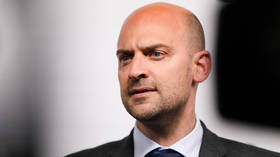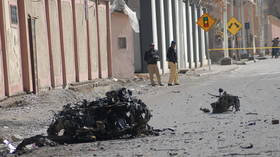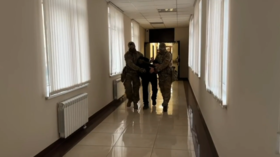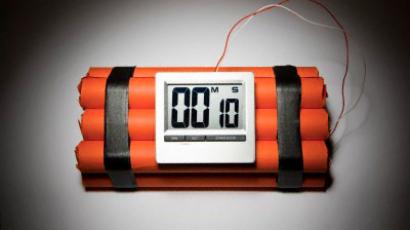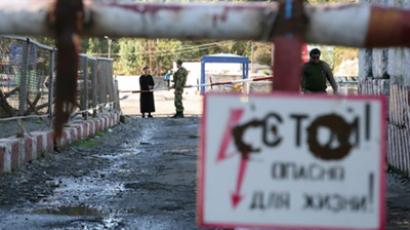European Court decision to throw out Ossetian cases “politicized”

The refusal of the European Court of Human Rights (ECHR) to consider 1,549 lawsuits against Georgia over the events of August 2008 is “unfair” and “politicized”, said South Ossetian FM Murat Dzhioyev.
The cases were filed by a group of over 3,300 Russian and South Ossetian peacekeepers over the violations of the European Convention of Human Rights during the Georgian attack on South Ossetia in August 2008. On Monday, the Court ruled to strike out the lawsuits over a failure, as it explained, by legal representatives of the applicants to supply additional information.Commenting on the matter, the South Ossetian Foreign Minister said that the decision indicates the body’s “disrespect of human rights in general”. It is “politicized” and aimed at “closing eyes to crimes committed by [Georgian President] Saakashvili’s clique against the humanity on the whole and, particularly, the citizens of South Ossetia and Russian peacekeepers,” Murat Dzhioyev told South Ossetian news agency, RES.Besides that, it is an attempt to “repudiate” conclusions made in an EU-sponsored report. Written by Swiss diplomat Heidi Tagliavini with the help of 30 European experts, the report stated that it was Georgia who launched an attack against South Ossetia. Dzhioyev pointed out that such “irrational” attitudes of European bodies to Georgia and his republic are quite common, which cannot help to strengthen peace in the Caucasus region. “What would happen to Europe, if after the Second World War, similar excuses were used to wreck the Nuremberg trials?” the South Ossetian Foreign Minister wondered. Meanwhile, across the border, the reaction to the news was completely the opposite. “The present decision of the European Court of Human Rights once again underscores the fact that applications against Georgia regarding August 2008 Russia-Georgia War are without sound legal basis,” the Georgian Foreign Ministry said in a statement.All the dropped lawsuits were represented before the Court by three advocated from Russia’s North Ossetian Republic. Having received no response to its request for information, sent on two separate occasions in 2010 to the applicants’ legal representatives, the Court decided to join and strike out 1,549 of the 3,300 cases belonging to the group, the ECHR press release said. Earlier on Monday, South Ossetia’s commissioner for human rights, David Sanakoyev told Interfax that he believed the decision was unfair. "I am studying the issue at the moment. But I can already say that the European court's decision is unfair toward the citizens who suffered the fierce aggression staged by Georgia in August 2008," he said. Sergey Markov, Russian State Duma deputy and Director of the Moscow-based Institute for Political Studies, said the ruling “is juridical trickery and a fairly politicized and obviously anti-Russian stance.” Speaking to Interfax agency, the MP added that the court’s refusal to hear the cases justifies the war crimes committed by the Saakashvili regime. "The Council of Europe has long been trying to build a supreme judicial body represented by the Strasburg Court, but those efforts are somehow being hampered by the court's behavior," Markov noted.





